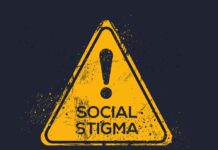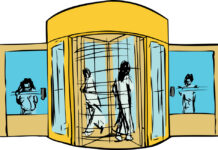A report from the Superior Health Council of Belgium (SHC) advises the government on the problems plaguing the current diagnostic model of mental health treatment and recommends against the use of DSM and ICD categories for individual treatment.
“The SHC notes that the most commonly used tools for diagnosing mental health problems (the Diagnostic and Statistical Manual of Mental Disorders (DSM), or the International Classification of Diseases and Related Health Problems (ICD)) pose several problems and recommends that they be used with caution and that the DSM categories not be at the center of care planning.”

The working group that composed this report included people with “backgrounds in psychiatry, lived-experience expertise, psychology, sociology, and philosophy.”
The SHC identifies several flaws in the logic and methods of the manuals used to diagnose people with mental health conditions.
- The DSM and ICD are based around the idea of distinct disorders which are categorically different from “normal” functioning, making them “illnesses.” However, all research suggests that there is significant overlap between diagnoses, many of which share the same criteria for diagnosis.
- Additionally, the difference between someone with a diagnosis and someone supposedly “healthy” is a matter of degree—everyone has these thoughts and behaviors, but they are diagnosed as disorders based on how much they impact daily life.
- The DSM and ICD reinforce the notion of biomedical disorders, despite the lack of evidence for mental health problems being neurobiological. According to the report, “one-sided “tissue thinking” (where the assumption is that the cause lies purely in the brain or the genes) has no scientific basis.”
- The biomedical model is promoted as being able to decrease stigma—but researchers have repeatedly shown that biomedical explanations for mental health problems consistently increase stigma from both laypeople and even medical and mental health professionals.
- The diagnostic categories are useless for individuals since they “do not provide a picture of symptoms, management needs, and prognosis because they lack validity, reliability, and predictive power.” For example, one person with a diagnosis of depression may be sleeping all day, not eating, and feeling suicidal, but still able to experience pleasurable activities. Another person may have insomnia, be overeating, not feel suicidal, but find no pleasure in things they used to enjoy — the same diagnosis, with two completely different experiences.
Because of these concerns, the SHC advises that “it is more useful to understand the combination of factors causing and maintaining symptoms than to identify a category.”
The SHC further argues that the DSM is so fundamentally flawed that it cannot be fixed without a complete paradigm shift in the way it documents mental health.
“The instrument presents a number of fundamental problems in terms of epistemology, validity, and reliability. We estimate that the quality of the instrument in its current set-up and form cannot be substantially improved.”
None of this should be taken as a denial of the suffering people experience—only as a refutation of the system that’s being used to explain that suffering. The SHC states, “Psychological complaints must be dealt with regardless of their seriousness, in a non-medical way, with perspective and meaning at the center.”
The SHC urges a complete reversal in the way mental health treatment is sought, obtained, and reimbursed. They advise that a mental health diagnosis should not be required for a person to receive help.
They recommend that mental health problems be treated in the following way: a narrative of the person’s problems, contextualized with information about the person’s life experiences, provide the basis for a conversation about what the “continuum from crisis to recovery” will look like for that individual. The therapeutic relationship is considered the most vital part of the treatment process.
“We recommend considering psychiatric disorders as interactive. They testify to the struggle between person and context, and difficulties experienced in life. On the one hand, they bear witness to the individuality of a person’s mental state. On the other hand, they reflect the challenges that an individual faces in his daily environment (such as relationships, social circumstances, and cultural mores). Moreover, psychological complaints and disorders often reflect a struggle with typical human existential uncertainties. These components form an interwoven, systemic whole.”
****
Superior Health Council. DSM (5): The use and status of diagnosis and classification of mental health problems. Brussels: SHC; 2019. Report 9360. (Link)















Well that makes too much sense. Thanks for sharing. It’s a ray of sunshine in the sombre shadows of psychiatry. Now if we could add garlic to that.
Report comment
The “Superior Health Council of Belgium (SHC) … recommends against the use of DSM and ICD categories for individual treatment.” Kudos to the wise Health Council of Belgium.
“The SHC urges a complete reversal in the way mental health treatment is sought, obtained, and reimbursed. They advise that a mental health diagnosis should not be required for a person to receive help.” I absolutely agree.
“They recommend that mental health problems be treated in the following way: a narrative of the person’s problems, contextualized with information about the person’s life experiences, provide the basis for a conversation about what the “continuum from crisis to recovery” will look like for that individual.” A health agency with common sense, not merely a desire to neurotoxin poison as many people as possible, in order to distract them from their real life problems, for profit.
How long will it take for the health agencies in the US to garner insight and enough common sense to understand continued use of the invalid and unreliable DSM “bible” is unwise?
Report comment
Wow, that’s a pretty big change!
Report comment
Makes too much sense for psychiatry to accept. Getting rid of the DSM and seeking real diagnoses, instead, would force wannabe psychiatrists to actually study real medicine instead of flippantly reeling off diagnoses, a serious blow to the profession and its numbers of practitioners.
Report comment
Honestly Bcharris I think psychiatrists don’t WANT to find biomarkers for the “illnesses” they presuppose. If they did they might find the methods used have been worsening the damage As Whitaker pointed out psychiatry would become obsolete since the neurologists would take over. Doctors who specialize in the brain rather than the imagination.
Report comment